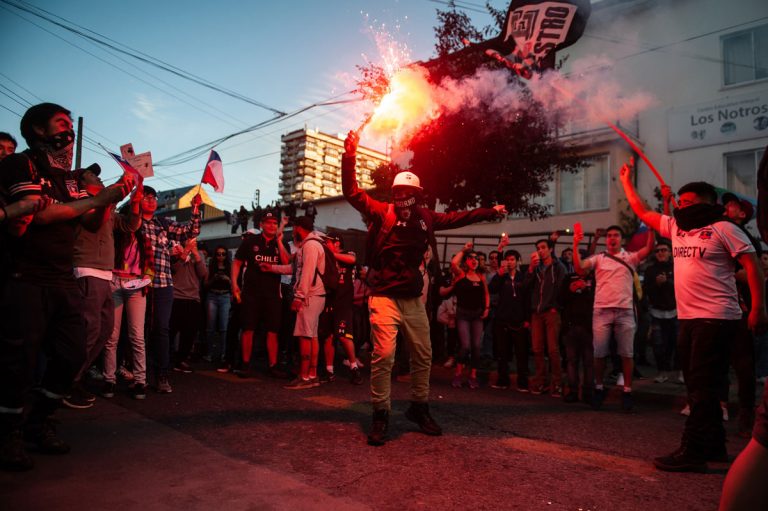What the world can learn from Chile’s latest steps towards a true democracy
On Sunday 25 October, the tables turned for Chile, marking an entirely new era and inciting hope for all, including the rest of the watching world. After a year of continuous anti-government protests from Chilean people demanding a radical change in their society, the work put into them has finally paid off. With voices heard and action taken towards creating a truer and improved version of democracy, what is happening exactly, and what does it mean for Chile’s future?
The protests began in October 2019, when hundreds of thousands of people filled the streets of Santiago de Chile demanding important (and needed) changes such as higher wages, pensions, better health care and improved education. In one day alone, more than a million people took to the streets of the capital.
On Monday 26, Chilean President Sebastián Piñera acknowledged a victory for all of those who were seeking a new charter but cautioned that it was only the beginning of what will be a long process towards direct change. He announced that “Starting today, we must all collaborate so that the new Constitution is the great framework for unity, stability and the future.”
The dedicated new convention will begin drafting a new constitution that will be submitted to voters in mid 2022. Despite being considered as one of the most politically stable countries in Latin America, Chile’s current constitution was drafted upon Augusto Pinochet’s outdated military regime from 1980. “Up until now, the constitution has divided us,” added President Piñera.
Augusto Pinochet’s former regime and plebiscite
Former President of Chile and head of the country’s military government, Augusto Pinochet, promoted an unjust system that was plagued by racial and gender inequalities. There was also a severe lack of freedom and respect for indigenous populations, the Mapuche people, all for the sake of fulfilling the government’s false promises towards ‘economic prosperity’. In his determination to exterminate leftism within the country all together, tens of thousands of opponents to his regime were tortured. After 17 years of dictatorship, 1990 saw a plebiscite (referendum) finally put an end to Pinochet’s reign.
After Chile’s transition from dictatorship to democracy, the country experienced several decades of economic growth while striking a fine balance and alternation between the left and right government parties. However, even as these parties peacefully replaced each other and it looked as though troubles were smoothing over, inequality was still deeply rooted within the Chilean society. The middle class had to suffer high prices with their low wages, tax evasion was frequented by the political and corporate elite, which faltered the trust in the government from the rest of the country and inevitably led to this justified social and political unrest.
Chile’s protests
Violence was seen to be increasing as Chilean protestors’ voices were failing to be heard, but in November 2019, fear of the violence becoming worse in the streets led representatives from a broad range of political parties to sign an agreement for social peace as well as a whole new constitution, which now has been approved almost unanimously by the houses of congress. And on Sunday 25 October, the stage was set for the referendum to finally take place, having been delayed due to the COVID-19 crisis.
In an unprecedented move, a profound agreement was also reached allowing women to make up 50 per cent of any subsequent constituent assembly. The electoral votes in favour of establishing a new constitution were much higher than expected and came to a total of 78.3 per cent. Many more people voted for the first time ever, as they adhered to the socially distant rules and queues showing dedication and faith in democratic and institutional change.
Chile has now erupted with celebrations much like the ones of 1989, when the referendum put an end to the dictatorship of Pinochet. Political scientist at University of Chile Maria Cristina Escudero told the Guardian that “We got to this stage as the country is in a crisis. It’s not only that the constitution is illegitimate, but it’s not suitable for the reality we live in—it’s time to change it.”
Celebrations as #Chile votes by huge majority to scrap #Pinochet-era constitution#Santiago #ChileProtests @sebastianpinerahttps://t.co/t2L7MdWuBE pic.twitter.com/j9DSrDZxyw
— World News Network (@worldnewsdotcom) October 26, 2020
Chilean constitution
The assembly plans to take office in May 2021, and its new constitution must be approved in a second referendum, which will take place in the first half of 2022, when the president of the republic will be convening an election with 155 new members of the mixed constitutional convention on 11 April 2021. A mix of gendered seats as well as seats for indigenous people will be granted for the first time. The rewiring of the constitution will allow the voices of the public’s frustration and pleas to finally be heard after months of protesting. Thanks to the people and the power of communal voice, Chile will become the first country in the world to have a real parity in the drafting of a constitution.
This is just the start, but it is a start that should lead the way in demonstrating what is, and should be possible for the rest of the world.
The Great Reset or Level Playing Field
— Bonfire Guy (@blayone) October 27, 2020
It's up to the people in which direction we choose.
- Total enslavement in a debt-based system
- Freedom and equality for all.
People are making their choice. The details matter.#Chile#Poland #BeverlyHillsFreedomRally #WorldWide https://t.co/miSlWZRsER pic.twitter.com/8phtJG3fvQ






